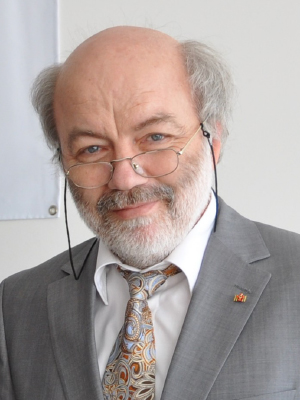Colloquia & Guest Speakers
What is Quantum?
Dr. Gerd Leuchs presenting via Zoom
Monday, September 12, 2022
3:30 p.m.
In-person in Goergen 101 and Zoom
Abstract
In physics we study systems of particles and fields and we try to develop theoretical models to reproduce the observations we are making. It is typically not the system per se which is classical or quantum. We rather may succeed in reproducing one observation on a particular system with a classical model, while a quantum model may be required for modelling another observation on one and the same system. In the talk I will provide examples of such scenarios and emphasize that a main difference between a classicaland a quantum theory is the nature of the measurement process.
(Refs.: N Korolkova and G Leuchs 2019 Rep. Prog. Phys. 82 056001; N Korolkova, LL Sánchez-Soto, G Leuchs, 2022 in preparation)
Biography

Gerd Leuchs studied physics at the Universities of Cologne and Munich. His PhD-thesis dealt with the finestructure splitting of sodium Rydberg atoms. He received the Habilitation degree at the University ofMunich on multiphoton processes in atoms. After stays in the USA and Switzerland, Gerd Leuchs becamefull professor of physics at the University Erlangen- Nuremberg in Germany. Since 2009 he was director at the Max Planck Institute for the Science of Light and since 2011 he is professor adjunct at the University of Ottawa. He is member of the German and of the Russian Academy of Sciences and holds honorary degrees from Danish Technical University and St. Petersburg State University. He won the 2005 Quantum Electronics and Optics Prize of the European Physical Society and the 2018 Herbert Walther Prize, a joint award by Optica (formerly OSA) and DPG. In 2012 he was awarded the Cross of Merit of the Federal Republic of Germany and in 2018 he was appointed a member of Bavaria’s Maximilian Order.
Currently (2022) he is vice-president of Optica. His research spans the whole range from classical to quantum optics, with emphasis on the limits of focusing, on photon-atom-coupling and on quantum noise reduction of light.
